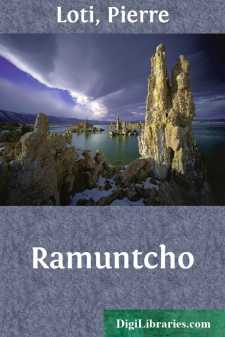Categories
- Antiques & Collectibles 13
- Architecture 36
- Art 48
- Bibles 22
- Biography & Autobiography 815
- Body, Mind & Spirit 144
- Business & Economics 28
- Children's Books 18
- Children's Fiction 14
- Computers 4
- Cooking 94
- Crafts & Hobbies 4
- Drama 346
- Education 58
- Family & Relationships 59
- Fiction 11834
- Games 19
- Gardening 17
- Health & Fitness 34
- History 1378
- House & Home 1
- Humor 147
- Juvenile Fiction 1873
- Juvenile Nonfiction 202
- Language Arts & Disciplines 89
- Law 16
- Literary Collections 686
- Literary Criticism 179
- Mathematics 13
- Medical 41
- Music 40
- Nature 179
- Non-Classifiable 1768
- Performing Arts 7
- Periodicals 1453
- Philosophy 65
- Photography 2
- Poetry 896
- Political Science 203
- Psychology 44
- Reference 154
- Religion 515
- Science 126
- Self-Help 85
- Social Science 82
- Sports & Recreation 34
- Study Aids 3
- Technology & Engineering 59
- Transportation 23
- Travel 463
- True Crime 29
Our website is made possible by displaying online advertisements to our visitors.
Please consider supporting us by disabling your ad blocker.
Ramuntcho
by: Pierre Loti
Categories:
Description:
Excerpt
CHAPTER I.
The sad curlews, annunciators of the autumn, had just appeared in a mass in a gray squall, fleeing from the high sea under the threat of approaching tempests. At the mouth of the southern rivers, of the Adour, of the Nivelle, of the Bidassoa which runs by Spain, they wandered above the waters already cold, flying low, skimming, with their wings over the mirror-like surfaces. And their cries, at the fall of the October night, seemed to ring the annual half-death of the exhausted plants.
On the Pyrenean lands, all bushes and vast woods, the melancholy of the rainy nights of declining seasons fell slowly, enveloping like a shroud, while Ramuntcho walked on the moss-covered path, without noise, shod with rope soles, supple and silent in his mountaineer's tread.
Ramuntcho was coming on foot from a very long distance, ascending the regions neighboring the Bay of Biscay, toward his isolated house which stood above, in a great deal of shade, near the Spanish frontier.
Around the solitary passer-by, who went up so quickly without trouble and whose march in sandals was not heard, distances more and more profound deepened on all sides, blended in twilight and mist.
The autumn, the autumn marked itself everywhere. The corn, herb of the lowlands, so magnificently green in the Spring, displayed shades of dead straw in the depths of the valleys, and, on all the summits, beeches and oaks shed their leaves. The air was almost cold; an odorous humidity came out of the mossy earth and, at times, there came from above a light shower. One felt it near and anguishing, that season of clouds and of long rains, which returns every time with the same air of bringing the definitive exhaustion of saps and irremediable death,—but which passes like all things and which one forgets at the following spring.
Everywhere, in the wet of the leaves strewing the earth, in the wet of the herbs long and bent, there was a sadness of death, a dumb resignation to fecund decomposition.
But the autumn, when it comes to put an end to the plants, brings only a sort of far-off warning to man, a little more durable, who resists several winters and lets himself be lured several times by the charm of spring. Man, in the rainy nights of October and of November, feels especially the instinctive desire to seek shelter at home, to warm himself at the hearth, under the roof which so many thousand years amassed have taught him progressively to build.—And Ramuntcho felt awakening in the depths of his being the old ancestral aspirations for the Basque home of the country, the isolated home, unattached to the neighboring homes. He hastened his steps the more toward the primitive dwelling where his mother was waiting for him.
Here and there, one perceived them in the distance, indistinct in the twilight, the Basque houses, very distant from one another, dots white or grayish, now in the depth of some gorge steeped in darkness, then on some ledge of the mountains with summits lost in the obscure sky. Almost inconsequential are these human habitations, in the immense and confused entirety of things; inconsequential and even annihilated quite, at this hour, before the majesty of the solitude and of the eternal forest nature....





